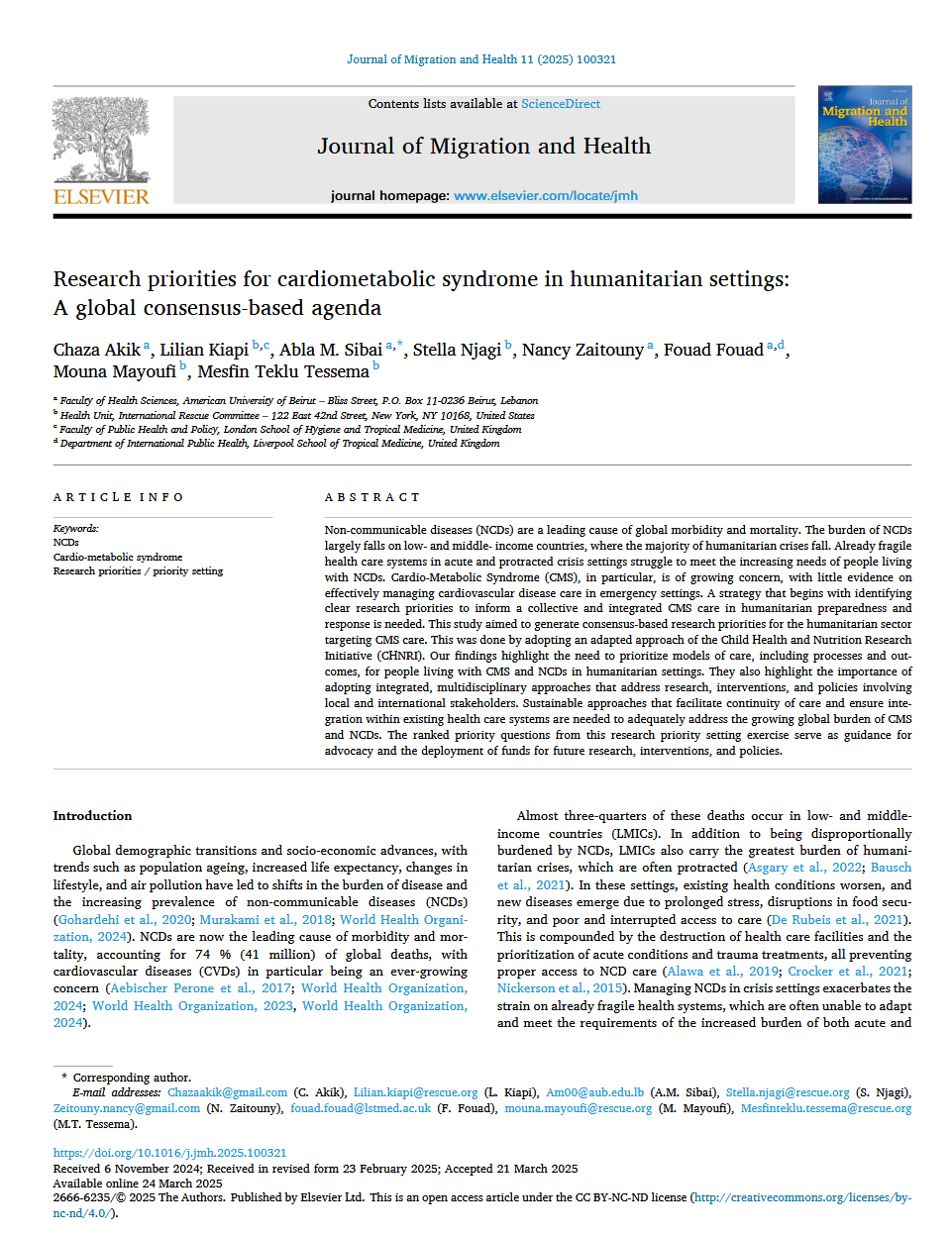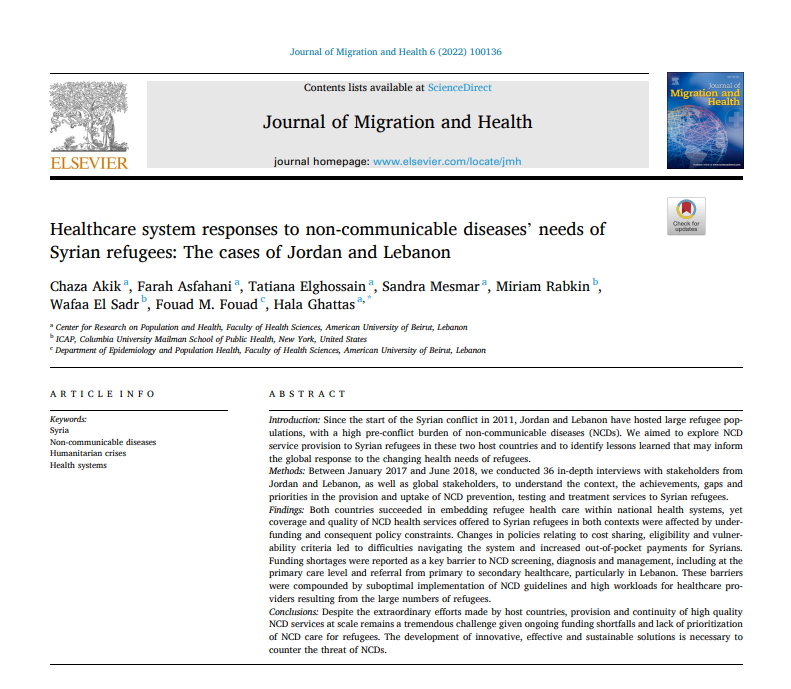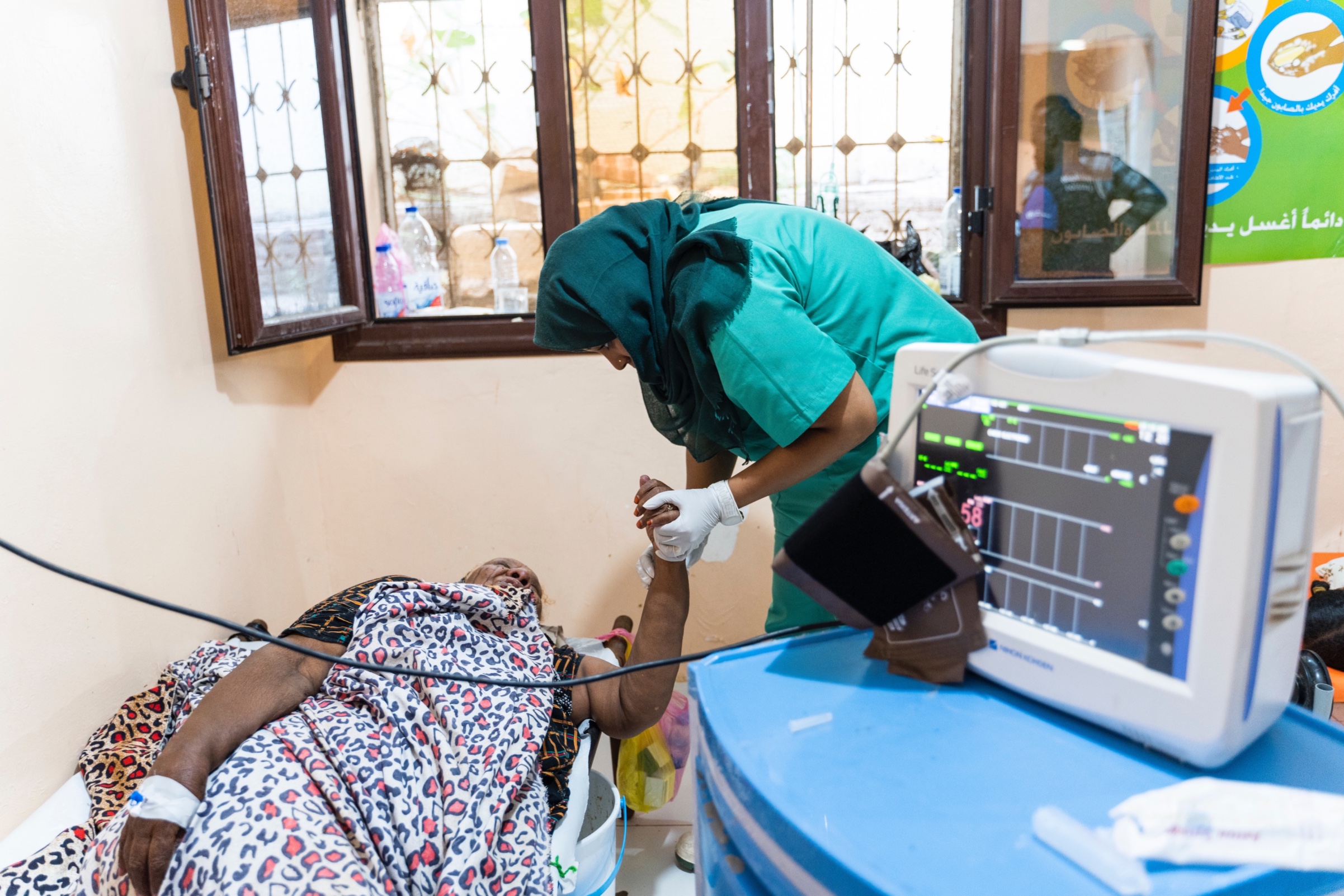Journal of Migration and Health
Research priorities for cardiometabolic syndrome in humanitarian settings: A global consensus-based agenda
Article
24 Mar 2025
Non-communicable diseases (NCDs) are a leading cause of global morbidity and mortality. The burden of NCDs largely falls on low- and middle- income countries, where the majority of humanitarian crises fall. Already fragile health care systems in acut...



